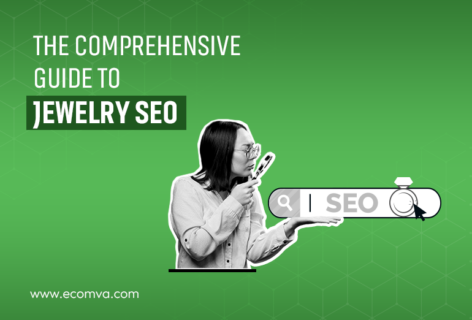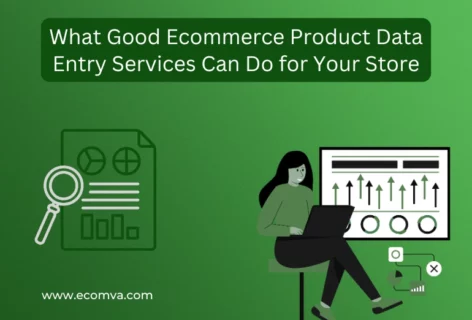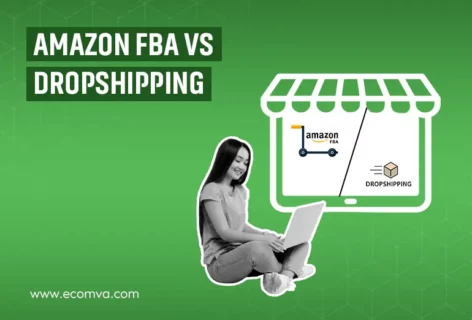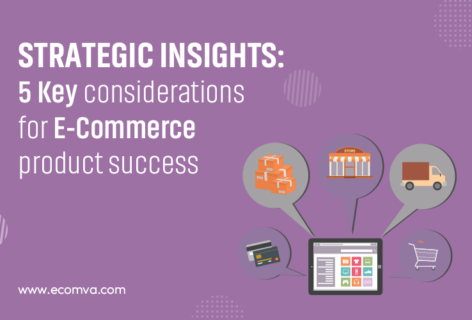Unlocking the Secrets of Ecommerce SEO: A Beginner’s Guide
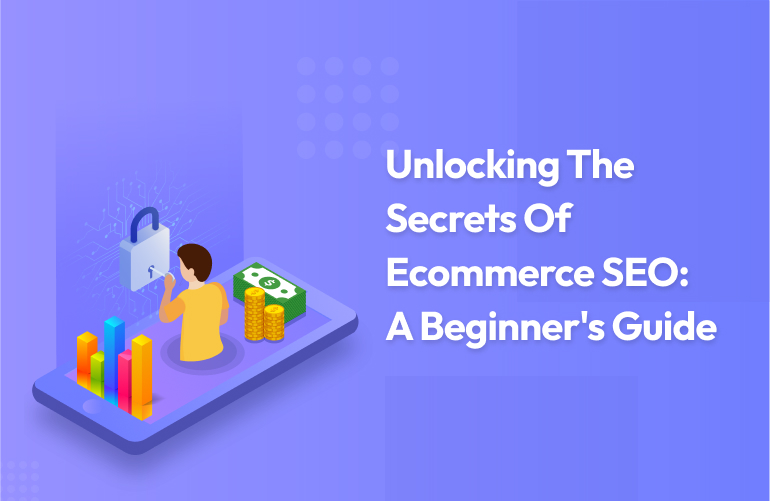
The main goal of the business is to generate traffic that could lead to a potential boost in sales. How are ecommerce SEO services bringing the right solution for your business?
Did you know 95% of the search traffic redirects to the first page of search results? With the right strategy, your web pages might organically rank on the first page.
If you’re running an ecommerce operation, you’re already familiar with it. Understanding the importance of ranking well on search engines like Google is important. In this beginner’s guide, we’ll explore some of the secrets of ecommerce SEO and show you how to optimize your online store to attract more organic traffic and increase sales.
What is ecommerce SEO?
Search Engine Optimization for ecommerce is optimizing an online store’s product pages, category pages, and other website content to enhance the visibility and ranking in SERPs (Search Engine Result Pages).
The goal of ecommerce SEO is to attract more organic traffic to an online store, increase sales, and improve the overall user experience. Some common ecommerce operation strategies include optimizing product titles and descriptions with relevant keywords, improving site speed and mobile responsiveness, creating high-quality content such as blog posts and product reviews, and building high-quality backlinks to the ecommerce site.
In addition to traditional SEO tactics, ecommerce SEO involves optimizing for specific ecommerce platforms and marketplaces such as Amazon, eBay, and Etsy. This includes optimizing product listings, utilizing relevant tags and categories, and optimizing product images and videos.
What are the common mistakes while managing ecommerce SEO?
While managing ecommerce SEO, there are several certain things that you must avoid with the help of virtual assistant companies in USA. Here are some common mistakes:
- Neglecting keyword research: This is a crucial step in ecommerce SEO, as it helps you identify the keywords and phrases required to reach the target audience. Neglecting keyword research can result in poor search engine rankings and missed opportunities for organic traffic.
- Duplicate content: Ecommerce websites often have many pages with similar content, such as product pages with different colours or sizes. Also, using duplicate content can result in penalties from search engines, as it can be seen as an attempt to manipulate search results.
- Poor site structure: This can make it challenging for search engines to crawl through your web pages and index them, leading to lower search rankings. It’s important to have a clear and organized site structure with easy navigation for users and search engines.
- Slow page loading: It can negatively impact user experience and search engine rankings. Optimizing your website’s speed by compressing images, minimizing code, and using a content delivery network (CDN) is important.
- Ignoring mobile optimization: Most people are accessing the internet on mobile devices, so it’s essential to have a mobile-friendly website. If your ecommerce platform is not mobile-friendly, it can result in poor user experience and lower search engine rankings.
- Overlooking on-page optimization: This includes elements like title tags, meta descriptions, and header tags, which help search engines understand the content. Overlooking on-page optimization can result in missed opportunities for higher search rankings.
- Focusing too much on keyword density: While it’s important to use keywords in your website’s content, it can lead to keyword stuffing. This black hat SEO tactic can result in penalties from search engines.
- Ignoring analytics: Analytics tools like Google Analytics and Google Search Console provide valuable insights into your website’s traffic, ranking, and user behaviour. Ignoring analytics can make it difficult to track the success of your ecommerce SEO efforts and make informed decisions about your strategy.
What are the unique strategies to manage ecommerce SEO for your business?
Keyword Research
With the right process of identifying the keywords and phrases your potential customers use, There are tools like Google Keyword Planner, SEMrush, and Ahrefs to conduct keyword research with low competition and higher search volume that you can target in your website’s content.
On-Page Optimization
This involves optimizing individual pages on your website to make them more search engine friendly. This includes optimizing titles, meta descriptions, header tags, and content with relevant keywords and improving site speed, mobile responsiveness, and internal linking.
Content Marketing
The practice of creating high-quality ecommerce content marketing using blog posts, product reviews, and tutorials to attract more organic traffic to your website. You build trust with your potential customers by providing valuable information and engaging content relevant to your industry.
Backlink Building
It is acquiring high-quality links from other websites to your ecommerce site. Backlinks are essential as they signal to search engines that other websites consider your content valuable and authoritative. You can build backlinks by guest blogging, reaching out to influencers and bloggers, and participating in online forums and communities.
Local SEO
Updating the website for local search queries, such as “restaurants near me” or “plumber in New York City.” If you have a physical store, you can optimize your website for local search by creating a Google My Business profile, adding your business to local directories, and optimizing your website’s content with local keywords.
Ecommerce Platform Optimization
On Shopify, you can optimize your website’s URLs, edit meta descriptions, and customize your website’s theme to improve its speed and mobile responsiveness. On Amazon, you can optimize product titles and descriptions, use relevant keywords in product tags, and participate in Amazon’s advertising programs to increase visibility.
Social Media Optimization
This involves optimizing your social media profiles and content to increase visibility and engagement. You can optimize your social media profiles by including relevant keywords in your bio and descriptions, using high-quality images and videos, and engaging with your followers. You can also promote your products and content on social media platforms to attract organic traffic to your ecommerce site.
Conversion Rate Optimization
CRO is optimizing your website’s design and content to increase the percentage of visitors who convert into customers. By improving your website’s usability, design, and checkout process, you can increase the likelihood that visitors will purchase on your website.
User Experience
It is an important factor in ecommerce SEO. By providing a seamless and intuitive user experience, you can boost the likelihood that visitors will stay on your website and make a purchase. You can improve user experience by optimizing your website’s design, navigation, and checkout process and providing high-quality product images and descriptions.
Analytics and Reporting
These are essential for tracking the success of your ecommerce SEO efforts. Using tools like Google Analytics and Google Search Console, you can track your website’s traffic, ranking, and conversion rates and use this data to make informed decisions about your ecommerce SEO strategy.
What are the benefits of having a perfect ecommerce SEO?
A perfect ecommerce SEO strategy can offer numerous benefits for your online store. Here are some of the key benefits:
- Increased visibility: With website optimization for search engines, you can increase your online store’s visibility and reach a larger audience. This can lead to more organic traffic and more opportunities for sales.
- Improved user experience: A well-optimized ecommerce website can provide a seamless and intuitive user experience, making it effortless for visitors to navigate and find the products they’re looking for. This can lead to higher engagement and conversion rates.
- Higher Ranks: By following best practices for ecommerce SEO, you can improve your website’s search engine rankings. Suppose you have the relevant keywords and phrases. It’s more likely to appear on the first page of search results.
- Gain trust: By appearing at the top of search engine results pages, your online store can establish credibility and trust with potential customers. This might lead to higher conversion rates and repeat business.
- Better Returns: Ecommerce SEO is a cost-effective way to drive organic traffic to your online store, leading to higher sales and a better return on investment (ROI) than paid advertising.
- Competitive advantage: By having a well-optimized ecommerce website, you can gain a competitive advantage over other online stores in your industry. This can lead to increased market share and a stronger brand reputation.
- Long-term benefits: Unlike paid advertising, which stops delivering results as soon as you stop paying, ecommerce SEO can offer long-term benefits for your online store. You can attract more organic traffic and sales over time by consistently optimizing your website for search engines.
Summing it up!
Ecommerce SEO is an essential part of any online store’s marketing strategy. Optimizing your website’s content, design, and user experience for search engines can attract more organic traffic, increase sales, and build your brand’s authority in your industry.
By taking support from ecommerce SEO services, you can unlock the secrets of ecommerce SEO and take your online store to the next level.


